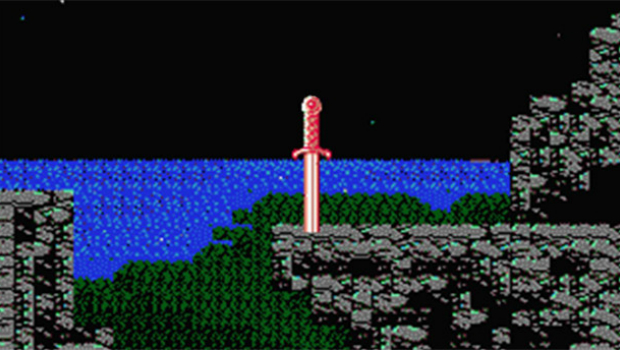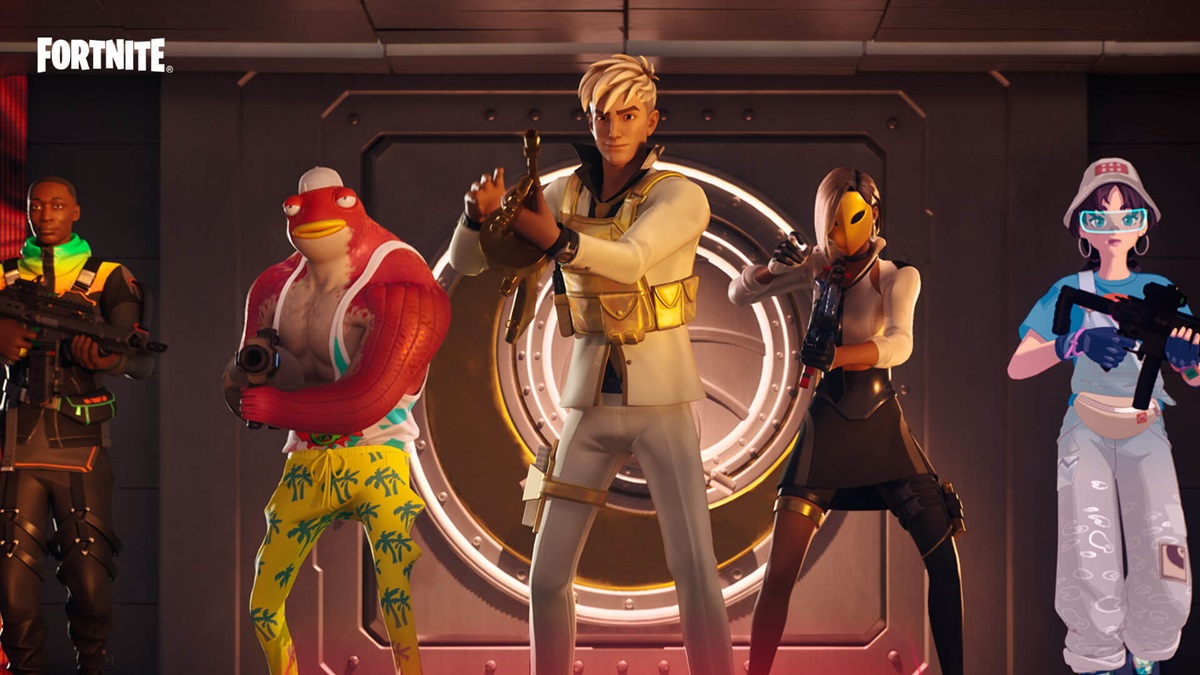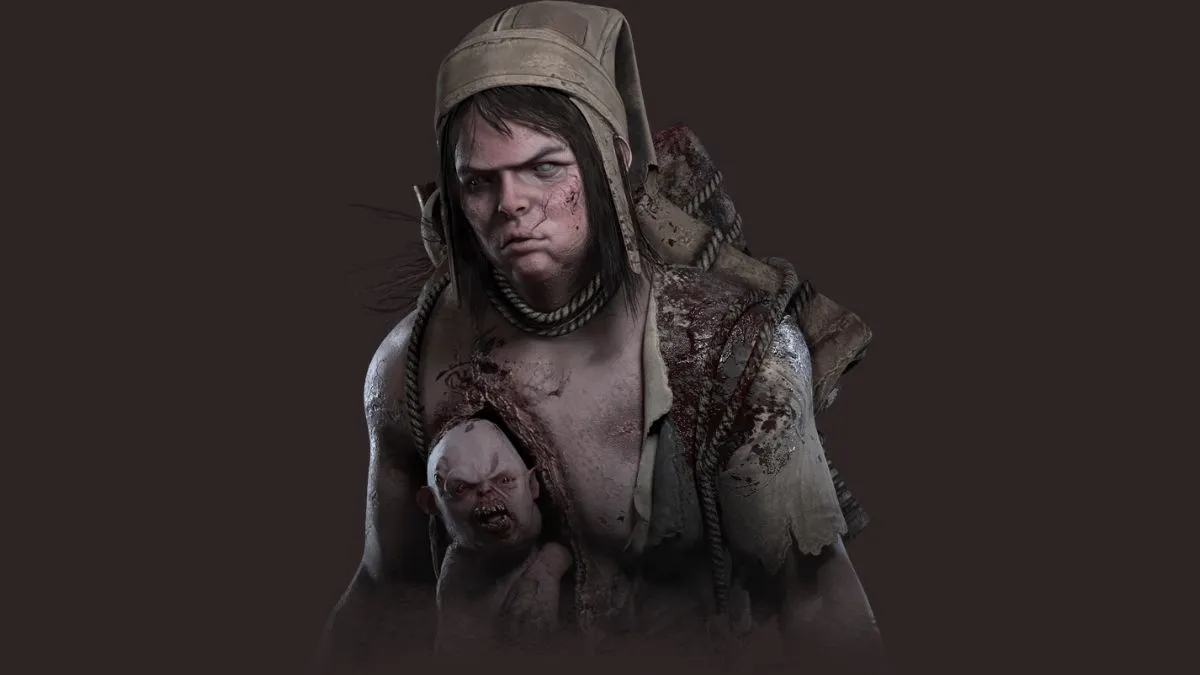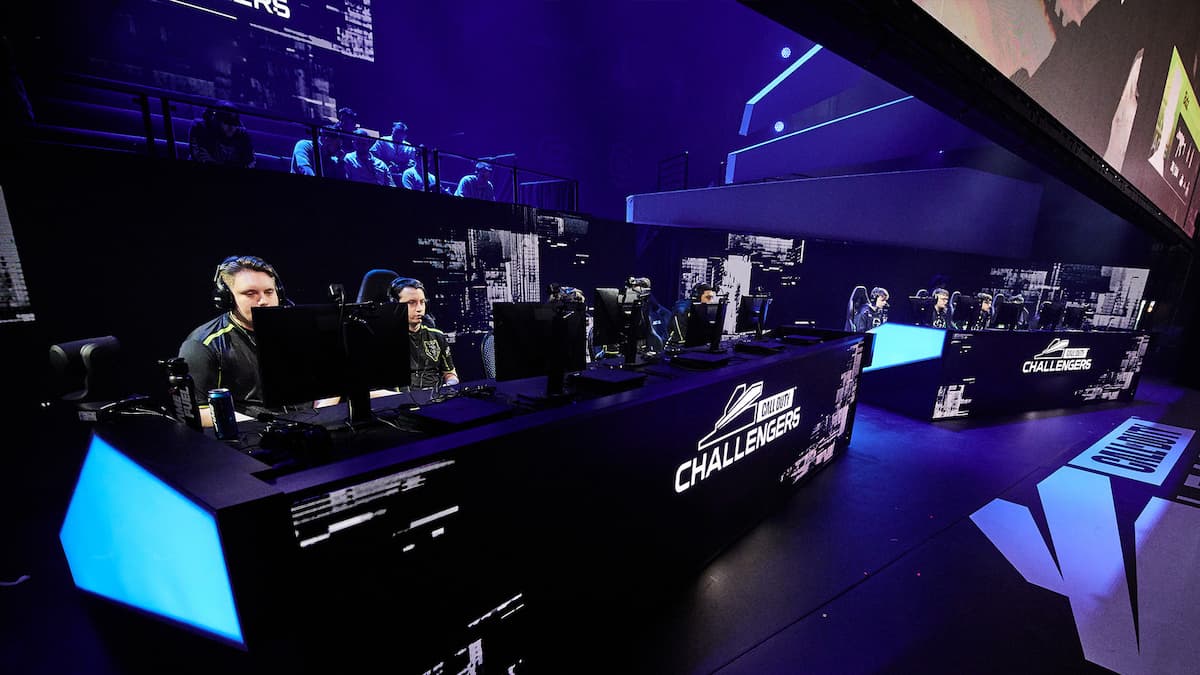Promoted from our Community Blogs!
[Dtoid community blogger Wrenchfarm shares his reminiscence for last month’s Community Assignment. Want to see your own blog appear on our front page? Go write something! –Mr Andy Dixon]
For a few years now, game developer Paul Barnett has been speaking about his theory of a gamer’s “golden age”. This is the period of time in a gamer’s life when they are THE MOST into games. When they are living and breathing videogames, just sucking them up and digesting them like one of those horrendously ugly fish you toss in the aquarium to keep the tank clean. This is when they will discover what they love about games and what they hate about them, and they will generally carry those prejudices with them for as long as they give a shit about videogames.
The golden age usually occurs early in life (when you have an embarrassment of free time to pump into games), and is driven by two things, both largely out of the individual gamer’s control: A) the era of videogame design they were living in, and B) what they had access to. These two factors will pretty much cement your thoughts about videogames, whether you believe it or not.
When I first heard this theory I thought it was A) completely obvious and potentially reductive, and B) 100% true.
As much as I would like to claim that I’m some kind of gaming aficionado who is able to appreciate videogames from any time or place, I know that’s complete bullshit. I had a very specific golden age; between 1989 and 1995, I played just about every single NES, SNES, and Genesis game that was released in North America. I was a walking encyclopedia of game knowledge. The local rental shops knew me by name. I was subscribed to no less than three monthly gaming magazines, and I would still sneak read other ones at the local grocery. Even though I’ve played games my entire life and continue to do so, I still harbor a vague and nagging sensation that the “best” era of videogame design is behind us already.
Paul nailed me to a T.

Paul is a British guy who was born in the 70s, and his personal golden age is completely alien to me. He grew up in a time before the Nintendo made it big and in a place where a bizarre machine like the Spectrum 48K was the platform of choice. I can look at the games he played and appreciate them as quaint oddities, smugly considering just how far we’ve come since those prehistoric days. But to him, those Spectrum games are sacred, they’ve been the guiding light of his entire career, he’s been trying to recapture the thrill and magic he felt playing things back then.
I have a “little” cousin that somehow over the past 15 years morphed from an adorable tyke into an awkward, gangly teenager. And now he won’t shut the fuck up about the Nintendo 64. Anytime I see him and the conversation turns to videogames (which it does in a matter of seconds upon meeting because it’s the only meaningful shared experience we can relate to), he waxes on about how games like Mario 64, Goldeneye, and Turok were the real deal. Granted, those are fine games (except for fucking Turok, I mean, what the hell?), but I can’t conceive of them as anything other than a bunch of games from a weird system I played between hanging up my SNES and eventually caving in and buying a Playstation. The N64 was fun and I certainly enjoyed the games I played on it, but I can’t venerate it. It’s not sacred. It’s not golden.
From my cousin’s perspective though, my passion for late NES and early 16-bit generation games must seem as archaic and bizarre as Paul’s obsession with his Spectrum and ancient Amiga games does to me. No matter who you are, games didn’t get good until you started playing them.
But I am more fortunate than Paul or my cousin. My golden age is back again.
I know intellectually that games have actually gotten better over time, not worse. I may cling to my NES golden days, but in reality, the industry has never been better. Not just in terms of raw technical power (which is a deeply boring way to evaluate games), but in ways that really matter. The astounding variety of games out there, the myriad tastes and desires they can accommodate. The sophistication of both gameplay and storytelling in the better titles released in the last decade, games that are actually capable of communicating an emotional message (this includes indie darlings like Gone Home, and big action titles like The Last of Us and BioShock Infinite). Games are fundamentally better in 2014 than they were in 1991. My brain KNOWS that this is true.
But try telling that to my heart.

In the storied history of Zelda games, Zelda II: The Adventures of Link is largely considered a bust. It’s not an embarrassment like the god-awful CD-i games, but it certainly isn’t a celebrated part of the Zelda legacy. If anything, those CD-i games get off light, they’re so obscure and alien to the rest of the franchise that they don’t feel like “real” Zelda games. Nobody, not even the most diehard anti-Nintendo zealot, seriously holds them against the series.
There is a grim lesson to be learned here – if you’re going to fail, make sure you fail spectacularly.
Zelda II on the other hand is generally reviled. Hear the words “Zelda II“, and you can expect to hear the phrase “black sheep”, or “disappointment” shortly thereafter. It is most charitably described as a failed experiment. A somewhat baffling departure from the formula before the series established (and in my opinion, became a slave to) its tropes. A game that tried too hard to be radically different and failed to measure up because of it.
But I will never be convinced of this. Zelda II hit me at the absolute zenith of my personal golden age. Eight years old, monomanically obsessed with videogames, and always, ALWAYS, hungry for more. More adventure, more challenge, more mystery. I’ve written about it before, but Zelda II became the entire focus of my gaming passion for a period of time, I was transfixed by it. Zelda II, by its own virtues and the convenient happenstance of when I played it, became my absolute favourite game, and has more or less held that position since. It cemented itself in my mind and became the de facto high-water mark I’d measure games against for (presumably) the rest of my life.
Obviously, this wasn’t the case for everyone.

Despite my gold-tinted glasses, Zelda II did indeed have its share of flaws. The difficulty oscillated between a legitimate test-of-skills, and unfair, frustrating “gotcha” traps and gimmicks. The latter half of the game features dungeons absolutely filthy with invisible pit-falls and serpentine mazes that are almost impossible to navigate without the use of a guide. The end boss is nigh-unbeatable without resorting to an exploit. And there are some famously embarrassing glitches and mistakes (“I AM ERROR” stands out). These are all pretty big problems.
My honest estimation of Zelda II is that it is a tragically underrated game. The scope of its imagination, its mastery of 8-bit pixel animation, and its incomparable soundtrack (perhaps the best score ever burned to an NES cartridge) are all forgotten because the game was A) Too hard. B) Too different. This is what is most frustrating to me, Zelda II has legitimate flaws to criticize, but they aren’t the reason most people didn’t like the game.
Whatever the reasoning, the sad fact is that as much as I love Zelda II, most people will never connect with it as the transcendent experience I remember it being. To other people, Zelda II was full of sloppy game design from a bygone era they are eager to leave fossilizing in the past. But my heart will never let go of the ideal image I have of it. To me, the qualities that made Zelda II what it was are the qualities I deliberately seek out in games.
This leaves me in somewhat of an awkward position. My golden age game is rife with all kinds of shit that nobody wants anything to do with anymore.
So thank Christ for Dark Souls.

Dark Souls is not a “retro game”. You don’t buy it from XBLA. It didn’t need to run a Steam Greenlight campaign. It doesn’t feature adorable throwback pixel-art graphics. But in all the important ways, Dark Souls is essentially the modern incarnation of Zelda II.
(It’s also praised as one of the best games ever made. Not saying I was always right about Zelda II and everyone else was wrong, but…)
I’ve written about this before so I won’t labor the point, but in a lot of ways, Dark Souls takes everything I enjoyed about Zelda II and brings those qualities forward into a new age, even the flaws. Maybe especially the flaws.
They are both deeply uncaring games. They give the player vague goals (ring the bells, put crystals in the seven temples) and set them loose into an incredibly dangerous world with no guidance. In both games, it is up to the player to find the right direction to set out from the opening area. The stat screens on both are utter nonsense until you understand them, which only comes from repeat trial and error (emphasis on the error). And they both feature enemies who will instantly decimate you until you learn how to deal with them. Whether you can’t get past the Ironknuckles guarding the basement of Zelda II’s first temple, or are getting humiliated by the Lizard Men of Sen’s Fortress, it’s the same challenge.
And the same sense of mastery.
Both games pay out over the long haul. If you stick with them and figure out the odd idiosyncrasies, they are a pair of the most rewarding games you can ever play. Maybe when you strip everything else away, that is what I’ve always been looking for from games. A mountain to climb.

Dark Souls is a game that came by its old-school sensibilities naturally. I don’t think the folks at From Software specifically sought out to make a game that would appeal to people like me – they just made something they wanted to play themselves. It’s a product of two individual factors – 1) that all the young kids that grew up in the 80’s and 90’s are now the grown up game designers of the 2010’s. 2) that the industry has never been as massively vast and varied as it is now.
The boys and girls who grew up in the same general era, and embraced the same sensibilities as me are all grown up now. They’re the super talented, highly educated, hyper impassioned current generation of game designers. While not every single one of those people are necessarily working to recreate the games of our shared youth, there are enough that take inspiration from them to bleed through. There are also enough studios, platforms, genres and distribution systems out there now to allow for such a wide variety of games that there are bound to be some made that appeal to the values that made my golden age what it was to me.
We’ve got games like Dark Souls to satiate the starving adventure nuts like me. After more than a decade of sleepy dormancy, the fighting game genre kicked back to life in the past few years. The resurrection spearheaded by Street Fighter 4, a game that directly aspired to play to the genres roots. SFIV plays more like SFII than it does the Alpha series, anime airdashers, or anything else. For the people that grew up on the PC we’ve got stuff like XCOM: Enemy Unknown coming out specifically tailored to get away from what has been popular for the past few years and back to what fans of the genre loved in the 90’s.
That’s just the stuff coming out that appeals to my golden age by accident. There is an entire sub industry out there right now that’s specifically designed to pluck those old heart strings. Indie games that either seek to recreate that old experience, or to draw upon it and expand on it.
We happen to live in a time where it has never been easier for the individual passion project to flourish. Where a single creative or a small team can get together, make and meaningfully release a game. And guess what? The people doing that now are the same people who grew up in my golden age.
The gatekeepers are dead, you don’t have to have a massive budget and industry ties to get published anymore. Steam, XBL, GoG, and all the other digital services out there changed the entire nature of the business. With the various Kickstarter, crowdfunding, and early access models out there (imperfect as they may be), small teams can drum up the funds they need for their game directly from the people that want them. This dovetails nicely with all the frustrated indie devs who want to pay homage to their roots, and all the nostalgic late twenty-somethings and early thirty year olds looking to reconnect to those games.

We’ve got stuff like Bastion out there, a game that plays like the best SNES game that was never released. Shovel Knight down-thrusting you back to the NES days. That Metal Slug vibe from the Neo-Geo days you thought were dead and buried lives on in Mercenary Kings. Booting up Steam is like stepping into a time machine for me.
Then there are more bizarre things. The Binding of Isaac, a game that pays constant nods to the classic Zelda dungeons, but changes the atmosphere from a young man’s optimistic adventure to a small boy’s nightmare. Games like Hotline Miami that embrace the spirit and maybe even the trappings of my golden age, but twists and contorts them in ways I could have never conceived of back then. Samurai Gunn seems like something I should have played with my brother in some dingy, dimly lit arcade, but it couldn’t have been – the times just weren’t ready for it back when it should have existed (if that makes any sense at all).
It’s not just indies that are doing it. Backed by the crowdfunding model, even big name devs with real muscle are getting into the action. Tim Schafer is reselling the golden age of PC adventure games to anyone who dreams of those point-and-click days. Chris Roberts, the man behind the legendary Wing Commander series is back, with a game that he promises will take us back to the thrill of the dead space-sim genre. Even the father of Megaman, Keiji Inafune, is taking advantage of the freedom of the new digital age. If Capcom doesn’t want to make a Megaman game that stays true to its roots, Inafune is happy to do it on his own.
My golden age is back. They are making more of the past everyday.

I don’t know about Paul’s personal golden age, or my cousin’s, they might never get the chance to recapture their glory days. It seems like if there was going to be a big resurgence of Spectrum games it would have happened by now (actually, now that I think about it, maybe games like Resogun and Nidhogg are the idealized version of games from that time). And as far as N64 games, it seems to me like most big name Nintendo games basically play like further refinements of the same ideas – a new Mario, another sprawling Zelda adventure like Ocarina of Time, a bigger, prettier Smash Bros. I don’t fully understand the difference between the games released on the 64 and the updated version of those games released on the Wii U, but my cousin assures me there is one. It might be up to his generation to define and recapture that aesthetic over the next decade.
But for me, right now? It’s 1991 again. There are dungeons to explore, mysteries to unravel, and challenges to overcome. The golden age is here again, long may it last.




